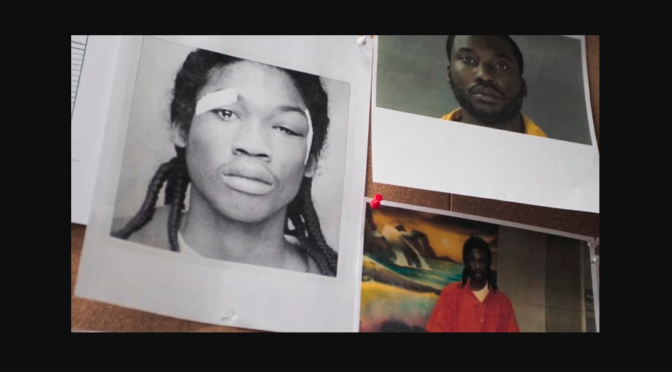Free Meek, the Amazon docuseries about the rapper’s 12-year criminal-justice saga, is an impressive but revealing production that joins other high-profile efforts to address institutional reform.
Midway through Episode 3 of Amazon’s new documentary Free Meek, the rapper and entertainment-industry mogul Jay-Z appears on-screen to offer a de facto thesis statement for the five-installment series. He ties the experience of the Philadelphia musician to those of the 4.5 million people whose stories of protracted injustice are less readily heard by wide audiences. “I really believe a lot of people don’t really understand what’s going on, or don’t believe it until they really see it,” Jay-Z, who is also one of the show’s executive producers, says. “Meek is not the only one. You tell people these stories—you can’t believe it, until you hear it from a source and [then] it’s like, this is not fantasy. This is fact. These are just things that are so far that I have to say something.”
Free Meek, which premieres today, follows the ongoing criminal-justice saga of Meek Mill, the rapper born Robert Rihmeek Williams. As its title suggests, the series doesn’t purport to take an ostensibly impartial view of Meek’s original case. It’s more interested in tying the story of the artist’s 12-year legal limbo to that experienced by black people around the country, especially in low-income neighborhoods. Jay-Z’s Roc Nation label, to which Meek is signed, co-produced the series with The Intellectual Property Corporation, and the show’s existence sheds light on the sometimes complicated high-profile efforts to address criminal-justice reform.
The documentary begins by establishing vignettes of Meek’s early life in Philadelphia, where his mother raised him after his “drug-dealer robber” father, as Meek calls him, was killed when Meek was 5—and where he got his start as a young battle rapper. These are some of the show’s most wrenching scenes. Meek speaks matter-of-factly about his life; of his chosen name, for example, he says, “Robert sound like a white guy’s name; Rihmeek sounded more ghetto to me.” But even the lighter moments of this introduction, such as when his aunt recalls the first time she encountered the 11-year-old Meek rapping, carry an ominous tone. The music is sinister, the lighting sometimes quite dark.
Full Read – https://www.theatlantic.com/entertainment/archive/2019/08/free-meek-jay-z-and-trickiness-celebrity-activism/595768/

